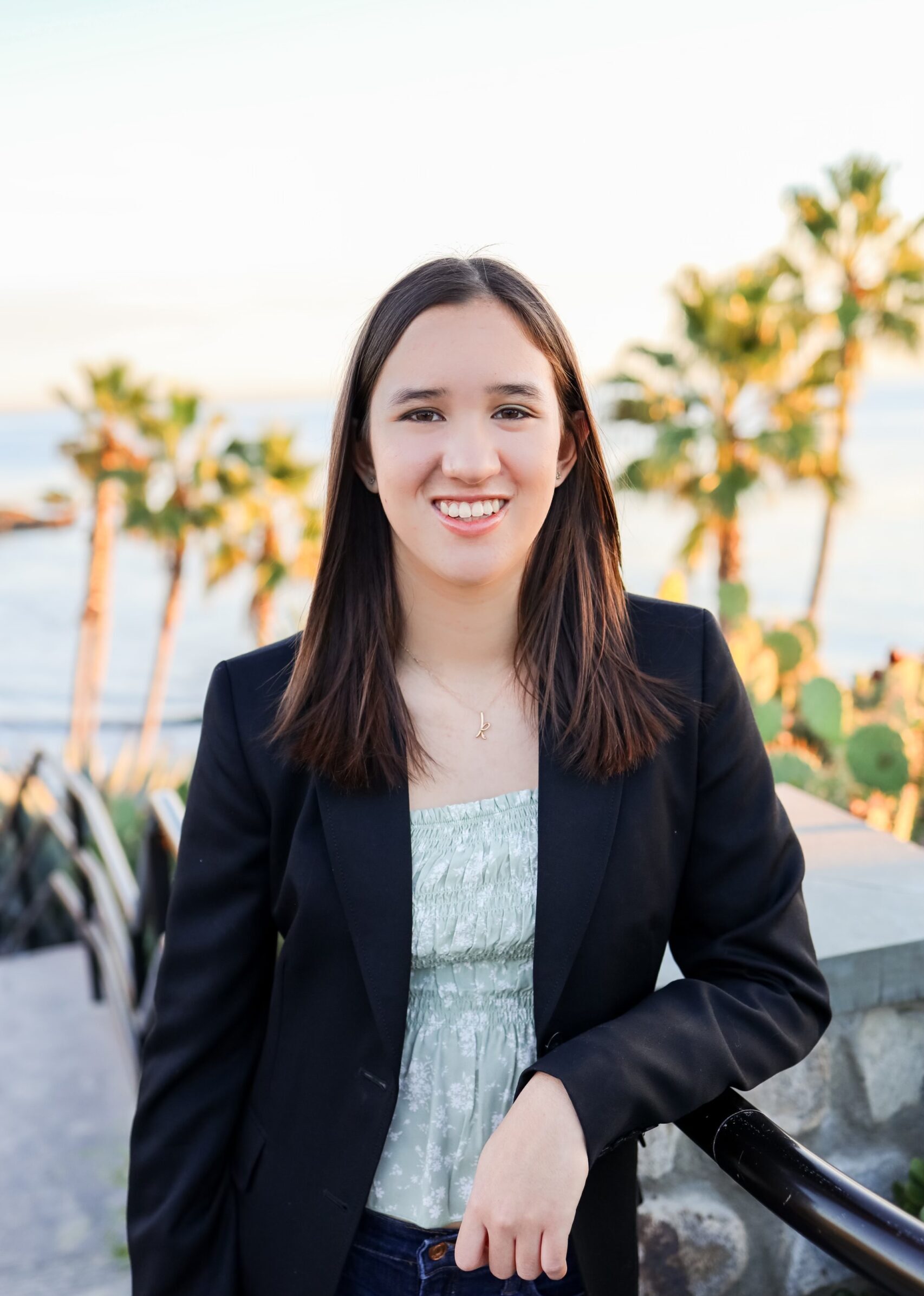By Greg Mellen
Aliso Niguel High’s Katherine Verrando will have a chance to advocate for fellow students at the highest levels of the state’s secondary education system in September.
The junior was chosen in November among applicants from across the state to be the lone student representative on the state’s Instructional Quality Commission (IQC). She is also a full voting member of the prestigious 18-member body.
Collectively, the group, formerly known as the Curriculum Development and Supplemental Materials Commission, is a key advisor to the State Board of Education.
“I developed an interest in educational advocacy during the pandemic, which exposed many systemic issues in the education system, and I wanted to contribute to addressing these challenges,” Verrando said shortly after attending her first orientation meeting for the group made up primarily of educators and administrators from across California.
“It’s an amazing opportunity to represent the student voice,” she said.
As a member, she will serve for the school year from September 1, 2024 to June 30, 2025 and represent nearly 6 million K-12 public school students in California. Verrando will attend bi-monthly meetings in Sacramento as part of her membership. Last year, with input from the Commission, the Board of Education approved a new mathematics framework.
“We are now in a multiyear process of laying down the framework,” said Mike Torres, executive director of the Commission.
That will include introducing new math instruction materials across the state. This fits nicely in Verrando’s wheelhouse as she said she is particularly interested in the math and language frameworks.
“I can provide unique insight through my firsthand experiences in the California public education system,” Verrando said.
In announcing Verrando’s appointment, Torres wrote, “The IQC is looking forward to having a student representative who will view matters related to the work it does through the perspective of one of the students it serves.”
Torres said the Commission appreciates the voice from the frontlines, so to speak.
“They help ground us because they’re in (the educational system),” he said.
Product of the pandemic
Having been at the heart of a tumultuous era in education, Verrando says her experiences have particular value. This was driven home when the pandemic forced students to become remote learners.
“As times change, education needs to change,” she said.
As a state, California is still dealing with the educational fallout. In 2022, when the state resumed academic testing, the Public Policy Institute found “significant declines in proficiency rates” in both math and language.
These are among the issues with which the state board must deal and Verrando, as an eighth grader at the time, understands the needs of future learners.
Verrando said she realized, “We need to advance technology into the curriculum and integrate digital learning.”
After meeting with members of the Commission, Verrando said, “I will value the experience of seeing the behind-the-scenes process. It was eye-opening, they were very open to having me there.”
Verrando said, “My experience as a student activist has really helped prepare me.”
Indeed, Verrando has already filled out an impressive resume. She is the three-time class president at Aliso Niguel High. She has interned for Congresswoman Young Kim and been a youth ambassador for the Bill and Melinda Gates Foundation.
Verrando is the founder of the Changemakers Student Leadership Team, which works with the national Lead4Change student leadership program. Among its projects, the team helps develop curriculum and leadership lessons. Her team created a Waste Management science curriculum for students in Liberia, raised money and donated board games to Casa Youth Shelter in Los Alamitos, and collected, wrote, and delivered homemade notes to seniors served by the Laguna Niguel Meals on Wheels program.
Through programs such as The World in Us, a youth program that supports youth-to-youth intercultural exchange programs online, Verrando says she is all about “combating educational inequities.”
With the Commission she says, “My job is to represent the diverse student voice,” which she realizes includes not only the well-represented but the under-represented and the excluded.
“I want to make an impact with people with different perspectives,” she says, adding that “it’s super important with the political and social strife.”

